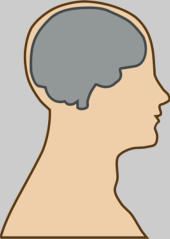“But
the
wisdom
that
is
from
above
is
first
pure,
then
peaceable,
gentle,
and
easy
to
be
intreated,
full
of
mercy
and
good
fruits,
without
partiality, and without hypocrisy” (James 3:17).
Persuadable
One
might
think
that,
because
the
wise
man
is
wise,
he
does
not
need
to
be
persuaded
of
anything.
Yet,
just
the
opposite
is
true.
The
wise
man
knows
that
he
is
wise
and
can
become
wiser
only
as
he
leaves
his
mind
open
to
persuasion
by
additional
and,
perhaps
even,
correcting
information.
Thus,
it
is
an
important
part
of
the
wisdom
which
makes
the
wise
man
wise
to
know
that
he
is
not
infallibly
wise.
Wisdom
is
always
“a
work
in
progress.”
This
is
confirmed
by
James’
observation
that
heavenly
wisdom
is
“easy
to
be
intreated.”
This
expression
translates
one
Greek term, which means, in a word, “persuadable.”
When
people
draw
conclusions,
they
can
identify
with
them
to
such
an
extent
that,
if
they
are
wrong,
they
see
that
as
meaning
that
there
is
something
wrong
with
them.
Disagreeing
with
them
then
becomes
“personal.”
They
think,
if
they
allow
themselves
to
be
shown
wrong,
that
must
mean
they
are
stupid,
ignorant,
or
morally
corrupt.
Hence,
they
are
loath
to
surrender
a
position,
especially
if
they
have
adopted
it
firmly
and
at
length.
They
see
it
as
a
negative
reflection
on
their
intelligence,
worth,
or
moral
character
to
admit
to
error.
So,
they
resist
admitting
they
are
wrong,
whether
they
have
been
exposed
by
better
argumentation
or
not.
In
short,
they
are
so
heavily
invested
in
their
positions
that
they
are
biased
to
the
point
of
blindness.
This
is
a
natural
human
tendency,
and
anyone will probably have to fight it as long as he lives.
Thus,
a
position
ought
neither
to
be
adopted,
nor
abandoned,
too
quickly.
In
this
case,
“too
quickly”
means
without
having
given
it
the
thorough
and
honest
study
it
deserves.
A
good
way
to
do
this
is
to
consider
the
best
argumentation
of
the
best
proponents
of
both
sides.
This
allows
one
to
regard
it
from
every
angle.
To
do
otherwise
is
to
invite
error
and
its
exposure
and
correction
on
one
hand,
or,
on
the
other,
to
tempt
oneself
to
the
stubbornness
and
unreasonableness
which
refuses
to
acknowledge
error
even
when
it
is
obvious.
Too
often,
when
people
argue,
they
are
really
arguing
to
defend
themselves
rather
than
the
truth.
When
this
happens,
they
not
only
fail
to
be
persuadable,
but
they
also
fail to be wise and to learn the truth.
None
of
this
justifies
being
so
persuadable
as
to
be
gullible,
easily
deceived,
and
wishy-washy.
Objective
truth
exists,
and
it
should
be
zealously
advocated
and
diligently
defended.
Jude
urged
earnestly
contending
for
the
faith
(vs.
3),
and
Paul
warned
brethren
“no
longer
to
be
children,
tossed
here
and
there
by
waves,
and
carried
about
by
every
wind
of
doctrine,
by
the
trickery
of
men,
by
craftiness
in
deceitful
scheming”
(Eph.
4:14).
So,
it
is
not
wrong
or
biased
to
argue
a
position
strongly
and
without
relenting.
Giving
up
one’s
position
too
quickly
is
not
something
to
be
recommended,
especially
if
it
is
a
carefully
considered
position
and
one
held
for
a
long
time.
Unless
a
person
is
gullible,
dishonest,
prejudiced,
or
ignorant,
perhaps
because
he
has
not
given
the
other
side
a
fair
and
open-minded
hearing,
it
would
seem
that
he
must
have
a
good
reason
for
occupying
the
position
he
holds.
Instead,
wisdom
simply
urges
a
person
to
be
willing
to
listen
to
the
opposite
side
and,
as
much
as
possible,
give
it
an
honest
hearing.
The
Bereans
were
noble-minded
because
they
were
open-minded
—
not
too
open-minded,
but
open-minded
enough
to
examine
the
Scriptures
daily
to
see
if
what
they were being taught was the truth (Acts 17:11).
It
is
always
wise
to
be
willing
to
listen
to,
and
understand,
the
opposite
side.
If
it
is
error,
doing
so
should
only
enable
one
to
identify
and
defend
the
truth
more
confidently
and
effectively.
Whether
in
principle
or
practice,
it
is
never
wrong
to
present
oneself
as
persuadable
by
truth
and
able
to
learn
and
repent
as
occasion
requires.
To
be
otherwise
is
to
be
unwise.


idea/belief

Copyright © 2017 - current year, Gary P. and Leslie G. Eubanks. All Rights Reserved.









Copyright © 2017 - current year, Gary P. and Leslie G. Eubanks. All Rights Reserved.
“But
the
wisdom
that
is
from
above
is
first
pure,
then
peaceable,
gentle,
and
easy
to
be
intreated,
full
of
mercy
and
good
fruits, without partiality, and without hypocrisy” (James 3:17).








idea/belief
Persuadable
One
might
think
that,
because
the
wise
man
is
wise,
he
does
not
need
to
be
persuaded
of
anything.
Yet,
just
the
opposite
is
true.
The
wise
man
knows
that
he
is
wise
and
can
become
wiser
only
as
he
leaves
his
mind
open
to
persuasion
by
additional
and,
perhaps
even,
correcting
information.
Thus,
it
is
an
important
part
of
the
wisdom
which
makes
the
wise
man
wise
to
know
that
he
is
not
infallibly
wise.
Wisdom
is
always
“a
work
in
progress.”
This
is
confirmed
by
James’
observation
that
heavenly
wisdom
is
“easy
to
be
intreated.”
This
expression
translates
one
Greek
term,
which
means, in a word, “persuadable.”
When
people
draw
conclusions,
they
can
identify
with
them
to
such
an
extent
that,
if
they
are
wrong,
they
see
that
as
meaning
that
there
is
something
wrong
with
them.
Disagreeing
with
them
then
becomes
“personal.”
They
think,
if
they
allow
themselves
to
be
shown
wrong,
that
must
mean
they
are
stupid,
ignorant,
or
morally
corrupt.
Hence,
they
are
loath
to
surrender
a
position,
especially
if
they
have
adopted
it
firmly
and
at
length.
They
see
it
as
a
negative
reflection
on
their
intelligence,
worth,
or
moral
character
to
admit
to
error.
So,
they
resist
admitting
they
are
wrong,
whether
they
have
been
exposed
by
better
argumentation
or
not.
In
short,
they
are
so
heavily
invested
in
their
positions
that
they
are
biased
to
the
point
of
blindness.
This
is
a
natural
human
tendency,
and
anyone
will
probably
have
to
fight
it
as
long
as
he
lives.
Thus,
a
position
ought
neither
to
be
adopted,
nor
abandoned,
too
quickly.
In
this
case,
“too
quickly”
means
without
having
given
it
the
thorough
and
honest
study
it
deserves.
A
good
way
to
do
this
is
to
consider
the
best
argumentation
of
the
best
proponents
of
both
sides.
This
allows
one
to
regard
it
from
every
angle.
To
do
otherwise
is
to
invite
error
and
its
exposure
and
correction
on
one
hand,
or,
on
the
other,
to
tempt
oneself
to
the
stubbornness
and
unreasonableness
which
refuses
to
acknowledge
error
even
when
it
is
obvious.
Too
often,
when
people
argue,
they
are
really
arguing
to
defend
themselves
rather
than
the
truth.
When
this
happens,
they
not
only
fail
to
be
persuadable,
but
they
also fail to be wise and to learn the truth.
None
of
this
justifies
being
so
persuadable
as
to
be
gullible,
easily
deceived,
and
wishy-washy.
Objective
truth
exists,
and
it
should
be
zealously
advocated
and
diligently
defended.
Jude
urged
earnestly
contending
for
the
faith
(vs.
3),
and
Paul
warned
brethren
“no
longer
to
be
children,
tossed
here
and
there
by
waves,
and
carried
about
by
every
wind
of
doctrine,
by
the
trickery
of
men,
by
craftiness
in
deceitful
scheming”
(Eph.
4:14).
So,
it
is
not
wrong
or
biased
to
argue
a
position
strongly
and
without
relenting.
Giving
up
one’s
position
too
quickly
is
not
something
to
be
recommended,
especially
if
it
is
a
carefully
considered
position
and
one
held
for
a
long
time.
Unless
a
person
is
gullible,
dishonest,
prejudiced,
or
ignorant,
perhaps
because
he
has
not
given
the
other
side
a
fair
and
open-minded
hearing,
it
would
seem
that
he
must
have
a
good
reason
for
occupying
the
position
he
holds.
Instead,
wisdom
simply
urges
a
person
to
be
willing
to
listen
to
the
opposite
side
and,
as
much
as
possible,
give
it
an
honest
hearing.
The
Bereans
were
noble-minded
because
they
were
open-minded
—
not
too
open-minded,
but
open-minded
enough
to
examine
the
Scriptures
daily
to
see
if
what
they
were
being
taught
was
the
truth (Acts 17:11).
It
is
always
wise
to
be
willing
to
listen
to,
and
understand,
the
opposite
side.
If
it
is
error,
doing
so
should
only
enable
one
to
identify
and
defend
the
truth
more
confidently
and
effectively.
Whether
in
principle
or
practice,
it
is
never
wrong
to
present
oneself
as
persuadable
by
truth
and
able
to
learn
and
repent
as
occasion requires. To be otherwise is to be unwise.












